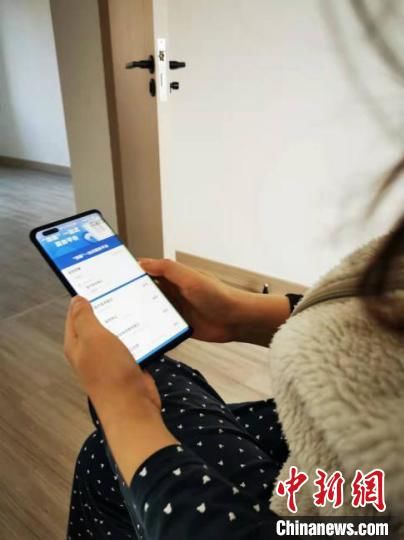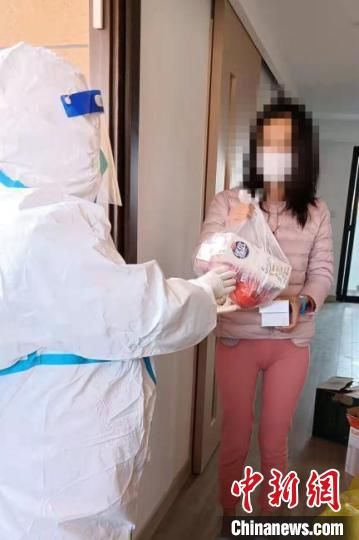China News Service, Shanghai, April 6 (Reporter Chen Jing) Shanghai Fourth People’s Hospital affiliated to Tongji University took over the shelter on Changzhong Road, Hongkou District. The institute has developed and launched a simple, efficient and practical information management system, which has greatly improved the management efficiency of the shelter.
After receiving an emergency call from the Hongkou District Health and Health Commission, requesting to take over the corresponding shelter within 72 hours, the president of the hospital, Xiong Lize, immediately organized an emergency meeting to study the deployment and implementation. Wang Zhiyong, director of the information management department of the hospital, told reporters that no matter whether the hospital’s existing information system or the information system of traditional makeshift hospitals is used, it cannot well meet the current requirements. system.
Wang Zhiyong led the information management team, with the full support of medical team leader Zhang Yihui, head nurse Sheng Xia, Hong Yan and Wang Yan and other medical staff, organized a capable force for development and testing, and quickly launched a simple set of , Efficient and practical information management system.
So far, 6 batches of 104 team members have settled in the shelter. Wang Zhiyong introduced that the system not only improves the registration efficiency of entry points and the operation efficiency, but also manages patients in the shelter in an orderly manner, ensuring accurate and efficient data statistics, and greatly improving the management efficiency of the shelter.

The hospital told reporters that the system developed by the hospital can quickly collect the information of people entering the cabin by reading the ID card, record the time of entering the cabin, and print the wrist immediately after assigning the bed number. Take and guide the relevant personnel into the nursing station. Wang Zhiyong said that it took about 5-10 minutes to manually register a patient in the past, but it only takes 1-2 minutes after the improvement, which greatly improves work efficiency and avoids the gathering of positive infected people. Scan the wristband to record the transfer time, and automatically generate, summarize and export the transfer order, which also greatly saves the precious time of the staff.
According to reports, the system will automatically highlight the patients who enter the cabin within 30 minutes, which is convenient for medical staff to arrange health education for new patients in a timely and orderly manner, and prepare daily necessities; The vital signs, condition changes and other information of positive infected persons will be recorded, and a large amount of valuable data will be accumulated. The system can also sort and filter according to various conditions such as time, age, bed number, etc., to help the staff accurately grasp the situation of the people in the cabin, and report the data in a timely manner. Zhang Yihui, the winner of the first Shanghai Medical Morality Model Anti-epidemic Special Award and the leader of the medical team, said: “The system effectively helps medical staff to manage the positive infected people in an orderly manner, helps medical staff to arrange work in a scientific and orderly manner, and improves the combat effectiveness of the epidemic.”< /p>
In the medical team in Shanghai, there is more than one example of quickly building a bridge of communication with minimal cost, and using the power of “wisdom” to bring “warm” care to positive infected people. Junlian Huixin Fangcai Hospital in Minhang District, Shanghai is operated by Shanghai Fifth People’s Hospital. Since the opening of the cabin on April 1, more than 1,000 positive infected persons have been treated here. The reporter learned that, unlike other large-scale Fangcang shelter hospitals, Junlian Huixin Fangcai Hospital was rebuilt from a talent apartment, with relatively scattered staff. In a relatively closed and unfamiliar environment, how to establish communication channels in a timely manner and solve urgent problems for residents has become an important issue for the medical team to consider.

Shanghai Fifth People’s Hospital made full use of the information system and established the “Huixin” one-stop service platform, opening up the “last mile” for the service needs of quarantined personnel. “. The “Huixin” one-stop service platform is divided into four categories: medical care, supplies, maintenance and psychological needs. Adhering to the principle of “should be full and full”, the system collects requirements through SMS push and self-scanning QR code, and establishes a list of requirements according to different types. The demand for medical services is relatively large, and the system collects statistics every hour; maintenance and material needs are regularly counted and distributed every day to reduce the pressure on staff with precise management.
Before the establishment of the platform, positive infected persons had to submit their demands through the security guards in the building, and then the security guards reported them, which is not only inefficient, but also prone to “distortion” during the communication process. With this platform, communication becomes clear and smooth. After logging in to the platform, the positive infected person can click to enter the corresponding module and fill in the information such as name, bed number, problem description and so on. The platform has humanized functions such as uploading pictures and videos to help staff understand the details of needs more accurately. After receiving the demand order, the staff will distribute it to the corresponding department for follow-up according to different contents, and strive to respond to and respond to every request to ensure that each list is put in place in a timely manner. Positive infected persons can also receive a reply to keep track of the progress in real time.

Introduced by the medical team, the “Huixin” one-stop service platform received more than 10 requests on the first day of trial operation, among which one was a minority positive infected patient Indicate the need to arrange a vegetarian meal. After receiving the information, the request is immediately forwarded to the food and beverage distribution department. The next day, a separately prepared vegetarian meal appeared at its door. It is reported that the hospital will continue to optimize the platform and further promote it in Junlian Huixin Fangcai Hospital. (End)